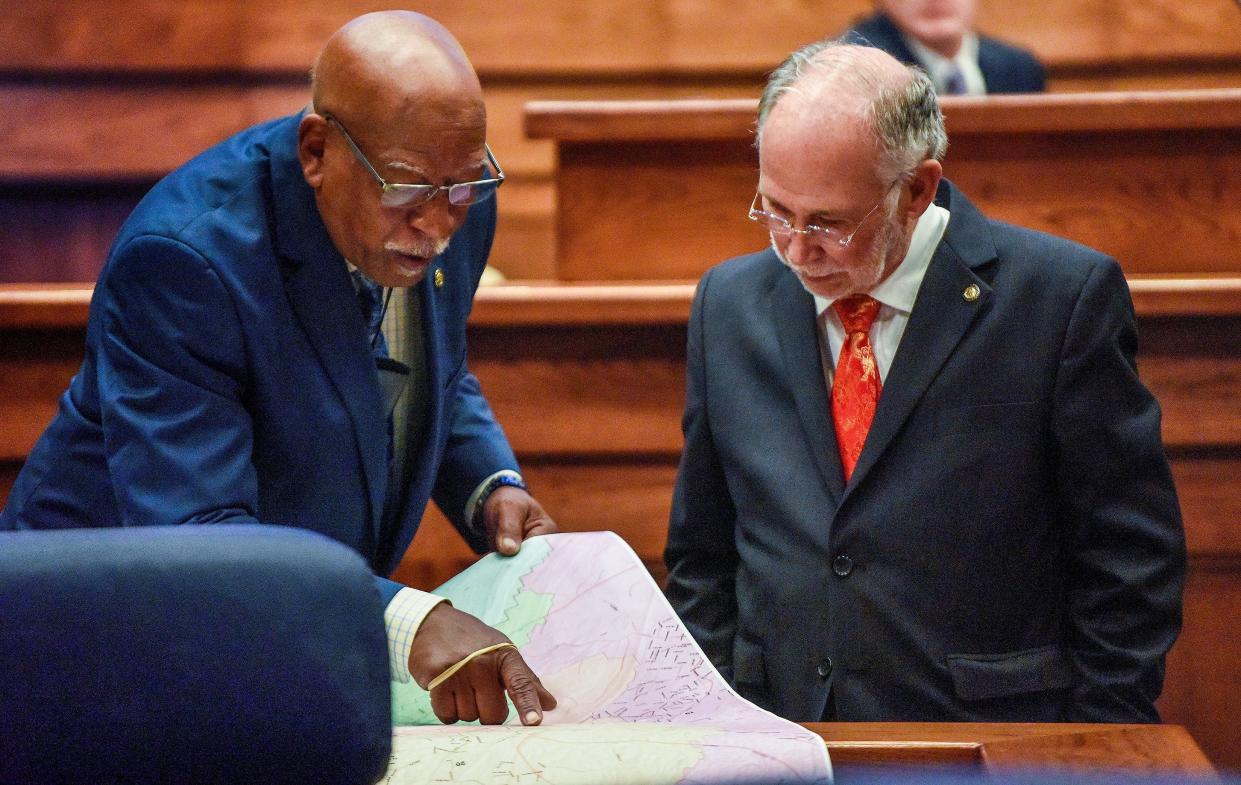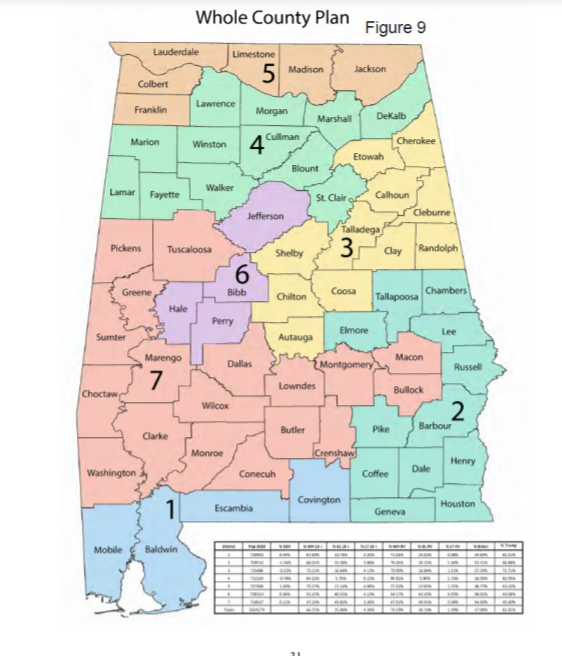Alabama attorney general appeals federal court ruling blocking new congressional map

The Alabama Attorney General's Office on Wednesday appealed a federal court ruling blocking Alabama's new congressional maps, arguing the court misread the Voting Rights Act and failed to properly consider testimony from a plaintiff's witness.
The state also asked the court to stay its order, arguing that "chaos" would ensue if its provisions, including a delay in qualifying for congressional seats, went into effect.
"The State would have insufficient time to reassign voters to new districts; independent candidates would suddenly learn they had been collecting signatures from the wrong people; and districts would likely be left unrepresented with no assurance that qualified candidates would decide — within days — to launch a campaign," the brief said.
Attorneys for plaintiffs who said the new maps made it impossible for most of Alabama's Black voters to elect their preferred candidates wrote in reply to the motion to stay that the state had not proven the court's decision on Monday was wrong and that its predictions of chaos were "hyperbole."
The plaintiffs' attorneys said that the suggestions of chaos were "hyperbole," adding that legislators knew they could be required to draw another majority-minority district.
"To the extent Alabama is now caught off guard, that is its own fault," the reply said.
As of early Wednesday morning, the court had not ruled on the state's motion to stay.
The judges ruled on Monday that evidence of racially-polarized voting presented by plaintiffs "suggests that any remedial plan will need to include two districts in which Black voters either comprise a voting-age majority or something quite close to it."
U.S. Circuit Judge Stanley Marcus, appointed by President Bill Clinton, and U.S. District Judges Anna Manasco and Terry Moorer, appointed by President Donald Trump, made up the panel.
More: Federal court blocks Alabama's new congressional district map, saying it's not fair to Black voters
More: Alabama Legislature reckons with ruling striking down state congressional map
In three separate lawsuits consolidated before the court, plaintiffs argued that the single majority-minority congressional district in Alabama reflected a racial gerrymander that unconstitutionally packed Black voters in the district and made it impossible for Black voters outside it to choose their preferred candidates. Plaintiffs argued a second district with a large number of Black voters would better reflect the population of the state, which is 26% Black.
Republicans in the Legislature said there was no way to draw that district without violating state reapportionment principles, and that doing do could mean separating other communities of interest, such as coastal Mobile and Baldwin counties.
The Attorney General's Office said the court had used "an erroneous interpretation of the Voting Rights Act (at best) and an unconstitutional application of the Voting Rights Act (at worst)."
"The Order has taken Section 2 to a new (and likely unconstitutional) place, by blessing illustrative plans and demanding a remedy that concededly sacrifices traditional non-racial redistricting principles to racial considerations," attorneys for the office wrote.

The defendants also accused the court of not considering testimony from Moon Duchin, a mathematics professor at Tufts University and an expert for the plaintiffs, that in drawing two million maps "with only a few traditional non-racial districting criteria," none came back with two majority-Black districts.
Attorneys for the plaintiffs wrote that the state's argument on race was "a blatant red herring."
"No one in this case, including the Court, has suggested that Section 2 requires subordination of traditional redistricting principles," the brief said, adding that court had ruled that the plaintiffs' proposed plans were drawn "consistent with traditional redistricting principles."
The plaintiffs' attorneys also argued the state was trying to "oversell" what Duchin's simulations had shown, and that they did not in themselves showed their proposed maps failed to meet legal criteria.
"One must consider whether Plaintiffs’ illustrative plans (and not the simulations) contain two majority-Black districts and respect traditional redistricting principles," the brief said. "The court concluded that they do, and Defendants offer no explanation for why that analysis was flawed."
Contact Montgomery Advertiser reporter Brian Lyman at 334-240-0185 or blyman@gannett.com.
This article originally appeared on Montgomery Advertiser: Alabama attorney general appeals ruling blocking congressional map

